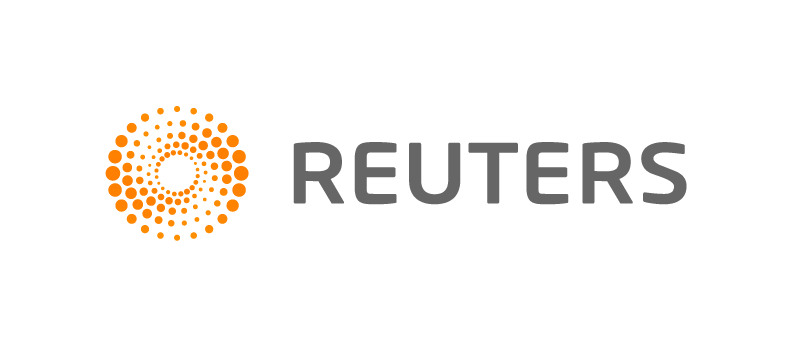Canada Unveils Carbon Price, Alberta Demands Pipeline in Return

TORONTO/OTTAWA, Oct 3 (Reuters) - Canada's federal government on Monday vowed to bring in a minimum price on carbon emissions by 2018, prompting the energy-producing province of Alberta to demand approval of a key oil pipeline in return.
Liberal Prime Minister Justin Trudeau, who took power last November promising to do more to protect the environment, said carbon pollution would cost $7.63 (C$10) a ton in 2018, rising by $7.63 (C$10) a year until it reaches $38.14 (C$50) in 2022.
In an announcement which could set off a prolonged bout of political arguments and horse-trading, he said the 10 provinces could either implement a carbon tax or a cap-and-trade market by then. Those that do neither will have a price imposed by Ottawa.
Trudeau said his measures would help Canada meet greenhouse gas emission cuts agreed under the Paris climate change accords.
But official data show Canada has little chance of meeting its goals, in part because of booming emissions from the energy sector. Trudeau also blamed what he called inaction by the previous Conservative government.
"We're not going to shun science and we're not going to put off the inevitable," Trudeau told parliament, saying a carbon price would improve Canadians' health and spur investment in green businesses.
Trudeau spoke as federal Environment Minister Catherine McKenna met her provincial counterparts to hammer out an agreement on carbon pricing ahead of a summit later this year.
In an early sign of trouble, Alberta Premier Rachel Notley - generally a political ally of Trudeau - said her province would "not be supporting this proposal absent serious concurrent progress on energy infrastructure".
Aides said this was a reference to Kinder Morgan Inc's proposal to twin its Trans Mountain crude pipeline from the Alberta oil sands to the Pacific coast. Ottawa has until Dec. 19 to decide on the project, which is opposed by environmentalists.
Trudeau said provinces would keep the revenues they collected under the new program.
Senior Conservative legislator Ed Fast accused the Liberals of "using a sledge hammer to force a carbon tax grab on struggling Canadian families."
Ontario, Quebec, British Columbia and Alberta, Canada's four most populous provinces, either already have a price on carbon or are implementing one.
Federal legislators in Ottawa will vote this week on ratification of the Paris agreement to reduce 2030 carbon emissions by 30 percent from 2005 levels, a vote that Trudeau's majority Liberal government is certain to win.
(Additional reporting by Andrea Hopkins in Ottawa; Editing by David Gregorio and Lisa Shumaker)
WHAT DO YOU THINK?
Generated by readers, the comments included herein do not reflect the views and opinions of Rigzone. All comments are subject to editorial review. Off-topic, inappropriate or insulting comments will be removed.
- Weatherford CEO's Rebound Plan Relies On Getting Smaller
- Iran Says Oil Market Is Too Tight For US Zero Exports Target
- China's Squeezed 'Teapots' Eye Petchem Path To Riches
- Baker Hughes: US Drillers Add Oil Rigs For Second Week In Three
- Venezuela Hands China More Oil Presence, But No Mention Of New Funds
- How Likely Is an All-Out War in the Middle East Involving the USA?
- Rooftop Solar Now 4th Largest Source of Electricity in Australia
- US Confirms Reimposition of Oil Sanctions against Venezuela
- EU, Industry Players Ink Charter to Meet Solar Energy Targets
- Analyst Says USA Influence on Middle East Seems to be Fading
- Russian Ships to Remain Banned from US Ports
- Brazil Court Reinstates Petrobras Chair to Divided Board
- EIB Lends $425.7 Million for Thuringia's Grid Upgrades
- Var Energi Confirms Oil Discovery in Ringhorne
- Seatrium, Shell Strengthen Floating Production Systems Collaboration
- An Already Bad Situation in the Red Sea Just Got Worse
- What's Next for Oil? Analysts Weigh In After Iran's Attack
- USA Regional Banks Dramatically Step Up Loans to Oil and Gas
- EIA Raises WTI Oil Price Forecasts
- How Likely Is an All-Out War in the Middle East Involving the USA?
- Venezuela Authorities Arrest Two Senior Energy Officials
- Namibia Expects FID on Potential Major Oil Discovery by Yearend
- Oil Markets Were Already Positioned for Iran Attack
- Is The Iran Nuclear Deal Revival Project Dead?
- Petrobras Chairman Suspended
- Oil and Gas Executives Predict WTI Oil Price
- An Already Bad Situation in the Red Sea Just Got Worse
- New China Climate Chief Says Fossil Fuels Must Keep a Role
- Oil and Gas Execs Reveal Where They See Henry Hub Price Heading
- Equinor Makes Discovery in North Sea
- Macquarie Strategists Warn of Large Oil Price Correction
- DOI Announces Proposal for Second GOM Offshore Wind Auction
- Standard Chartered Reiterates $94 Brent Call
- Chevron, Hess Confident Embattled Merger Will Close Mid-2024
- Analysts Flag 'Remarkable Feature' of 2024 Oil Price Rally


